Submitted by WA Contents
BIG and Samoo reveal design for world’s first prototype sustainable floating city: Oceanix Busan
Korea, South Architecture News - May 04, 2022 - 15:16 6662 views

BIG and Samoo (Samsung Group) have revealed design for the world’s first prototype sustainable floating city to be built in the Busan city of South Korea.
Called Oceanix Busan, the masterplan is developed by UN-Habitat, the Busan Metropolitan City of the Republic of Korea, and a New York-based blue tech company Oceanix as a resilient and a flood-proof prototype.
The project proposes a framework for a floating masterplan that is scalable and expandable integrating groundbreaking new technologies for coastal cities facing climate urgency, scarcity and rising sea levels.
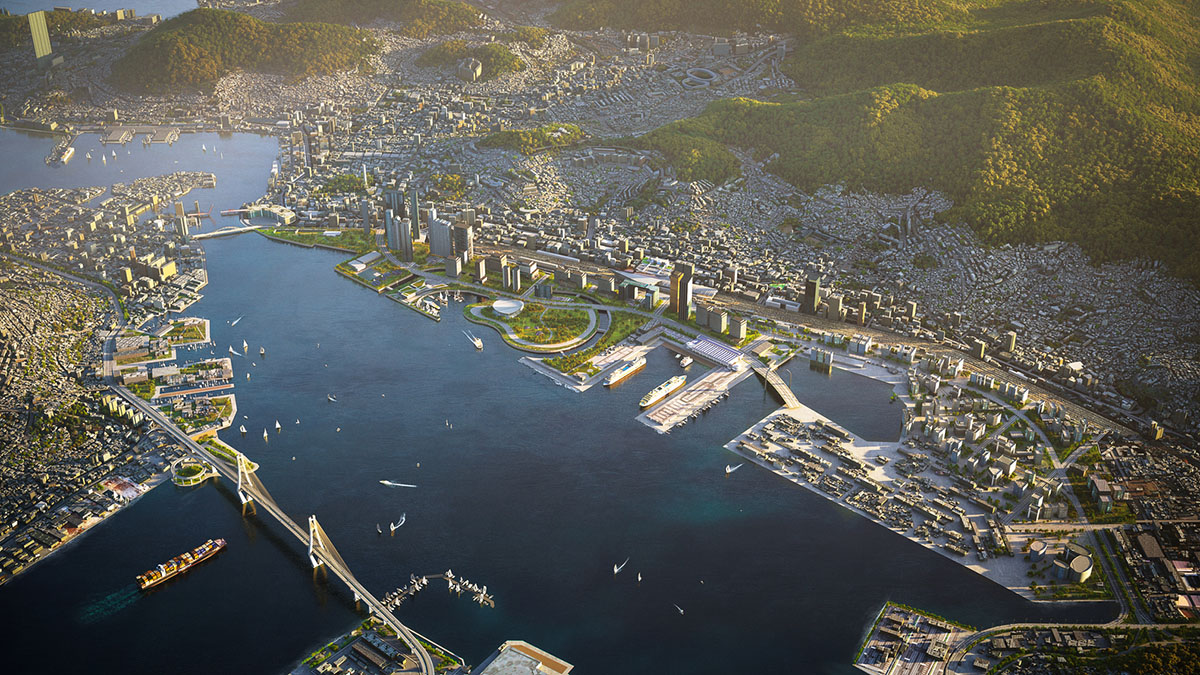
In November 2021, the location of the project was announced as the city of Busan since the city was conceived as "the ideal choice to deploy the prototype," according to Maimunah Mohd Sharif, the Executive Director of UN-Habitat.
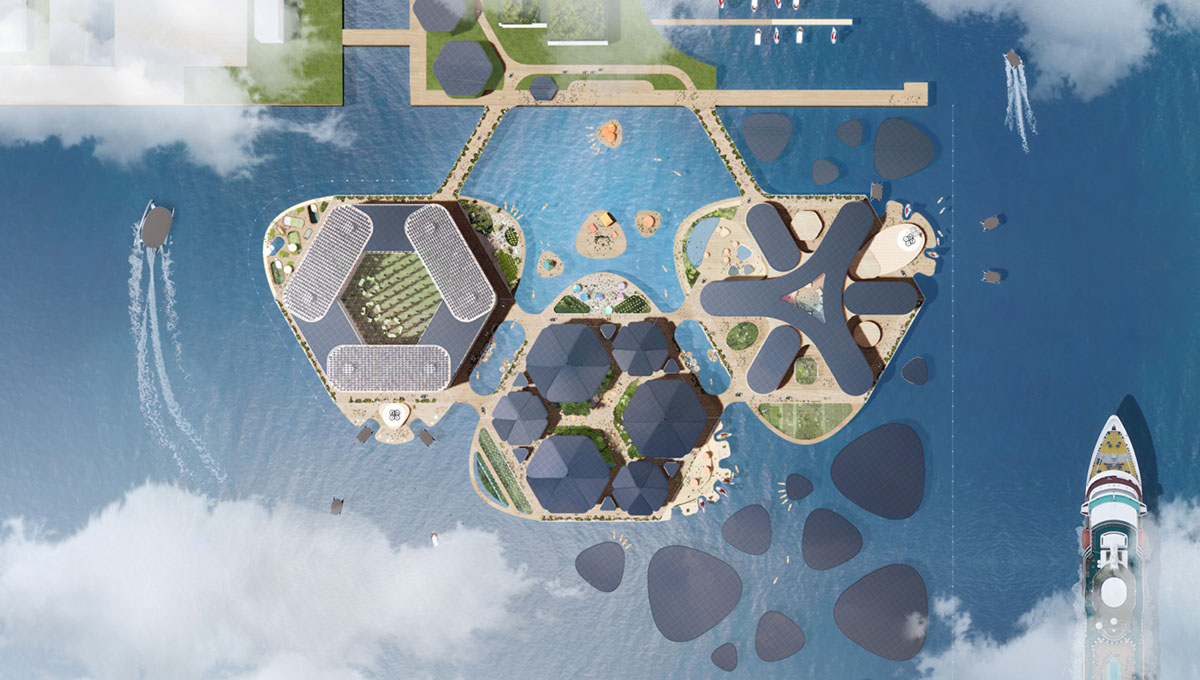
As the second largest city in the Republic of Korea, Busan is a city of 3.4 million residents. The city is also one of the most important maritime cities of the 21st century, making it a suitable city to deploy the sustainable floating city prototype with its marine engineering capabilities.
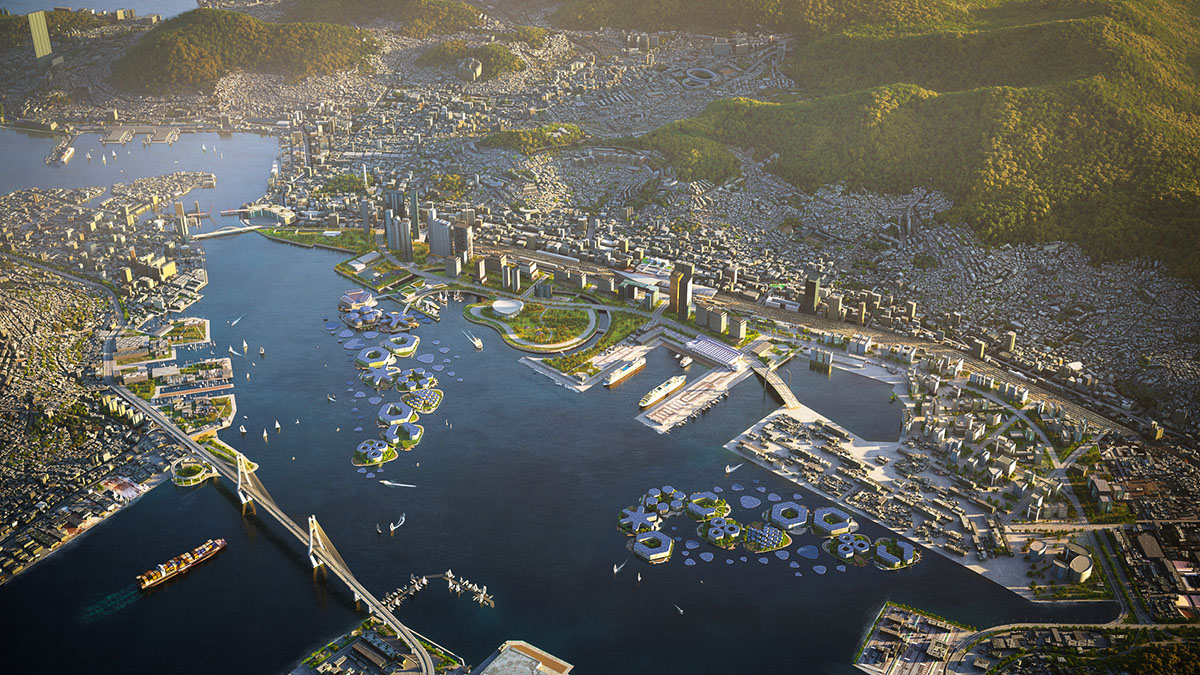
"Today is a pivotal milestone for all coastal cities and island nations on the frontlines of climate change," said Chief Executive Officer of Oceanix, Mr. Philipp Hofmann.
"We are on track to delivering Oceanix Busan and demonstrating that floating infrastructure can create new land for coastal cities looking for sustainable ways to expand onto the ocean, while adapting to sea level rise."
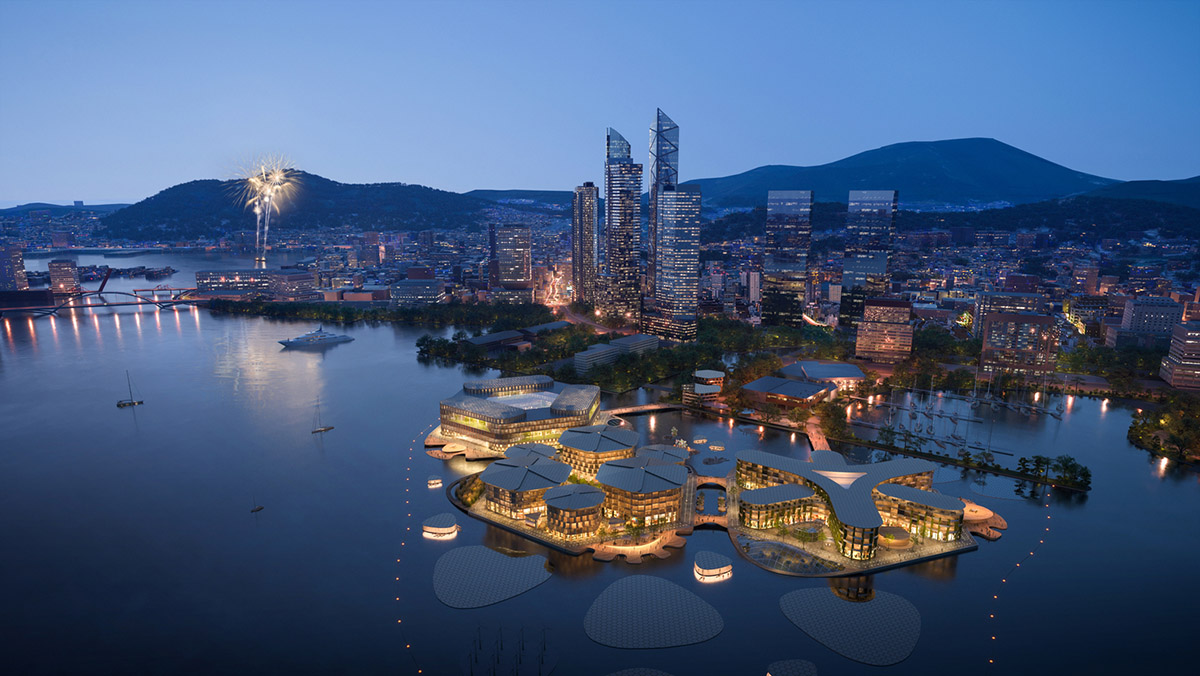
The masterplan, envisioned as a resilient and sustainable floating community, is comprised of interconnected neighborhoods encompassing a total of 6.3 hectares to be able to host 12,000 people.
Featuring low-rise buildings, each neighborhood is designed to function for a specific purpose: living, research, and lodging. Each neighborhood will contain between 30,000 to 40,000 square meters of mixed-use programs.
The units will be built on floating platforms that will connect to the land with link-span bridges framing the sheltered blue lagoon of floating recreation, art, and performance outposts.
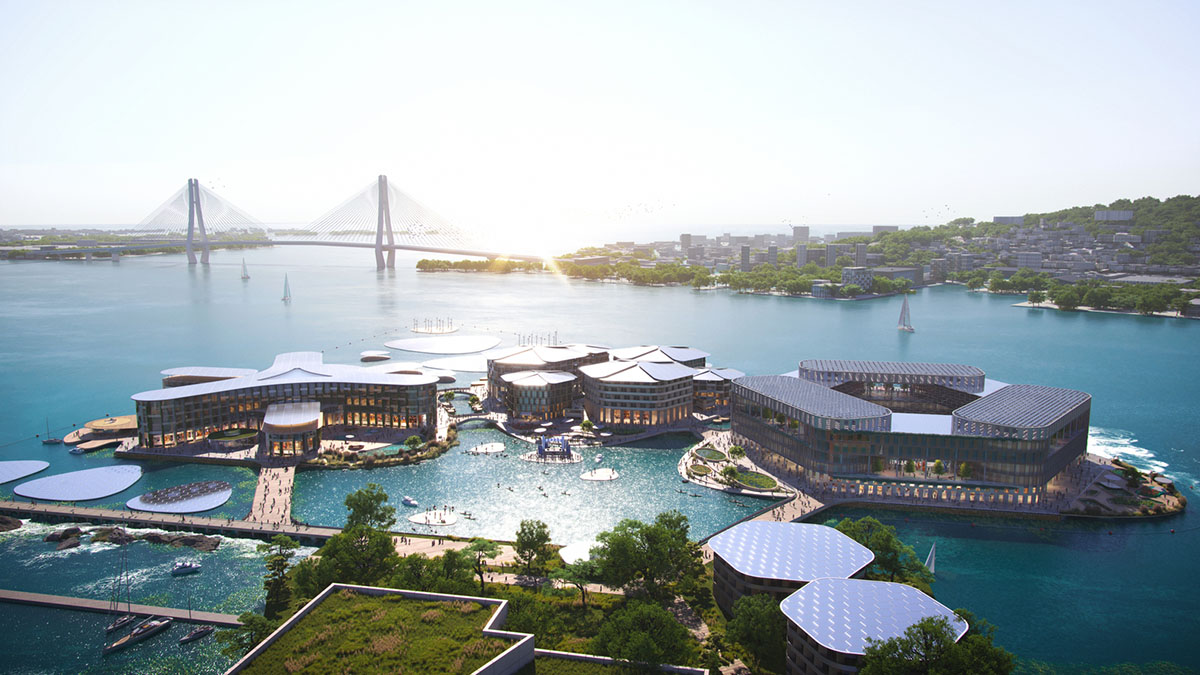
The low-rise buildings are defined by their soft lines and they feature terraces for indoor-outdoor living, aiming to activate the network of vibrant public spaces.
"In designing a solution for the most vulnerable coastal locations on the frontlines of climate change, Oceanix’s new modular maritime neighborhoods will be a prototype for sustainable communities informed by Busan’s unique juxtaposition of old and new," said Bjarke Ingels, Founder and Creative Director of Bjarke Ingels Group.
"Creating a connection between the city and the seaside, Oceanix Busan will expand this spirit onto the waterfront," Ingels added.

Oceanix Busan is aimed to organically transform and adapt itself over time. Initially, the masterplan will start with three platforms accommodating 12,000 residents and visitors, but it would have the potential to expand to more than 20 platforms over time.
The floating platforms will be accompanied by a series of productive outposts with photovoltaic panels and greenhouses for growing food - that can expand and contract over time based on the needs of Busan.
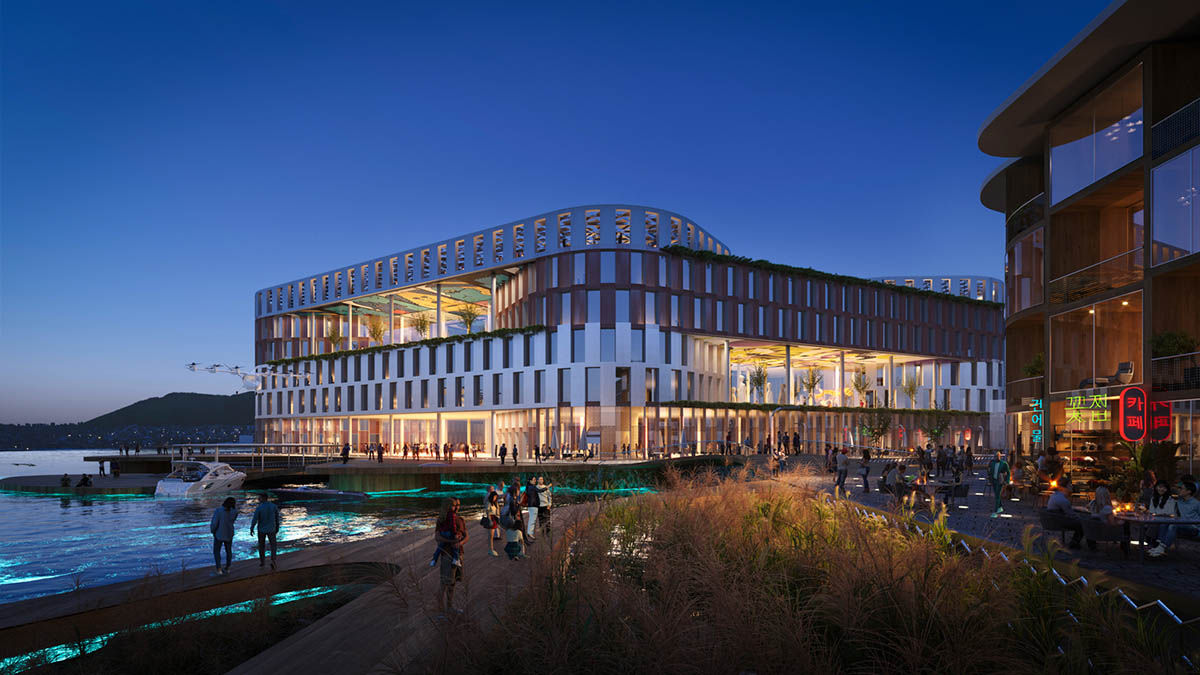
"We cannot solve today’s problems with yesterday’s tools. We need to innovate solutions to global challenges," said UN-Habitat Executive Director Maimunah Mohd Sharif.
"But in this drive for innovation, let’s be inclusive and equitable and ensure we leave no one and no place behind. I am happy this Roundtable takes place ahead of the High-Level Meeting on the New Urban Agenda, where cities and countries around the world come together to discuss sustainable urbanization," Maimunah Mohd Sharif added.
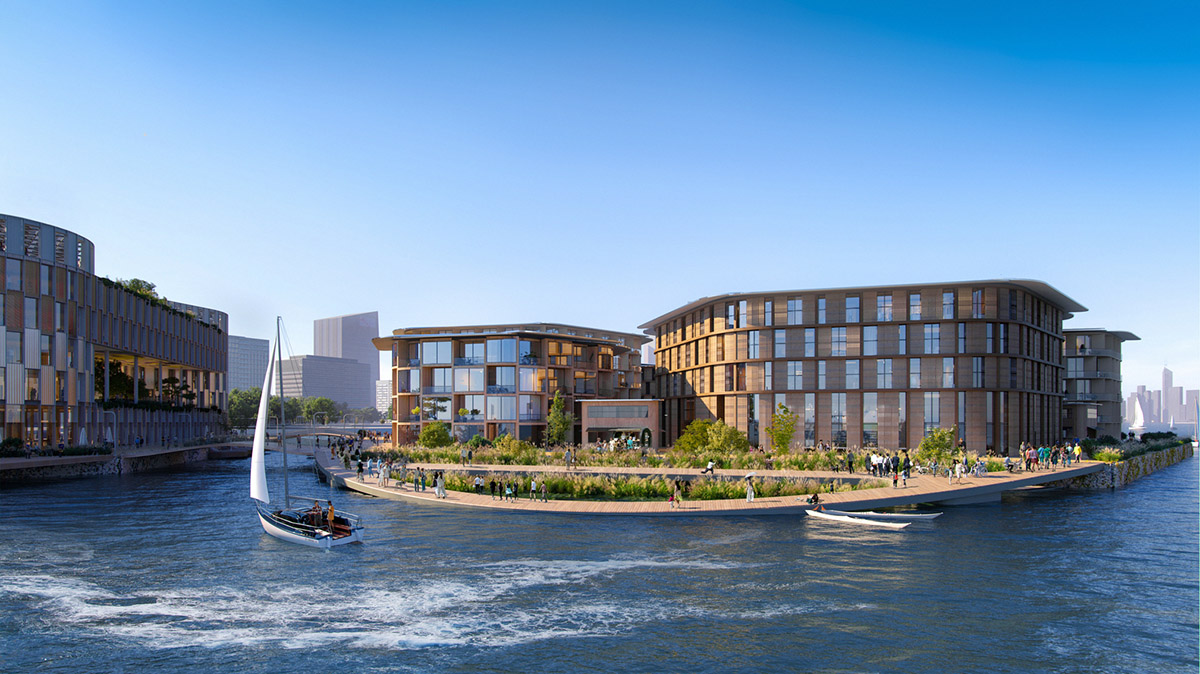
Oceanix Busan will contain six integrated systems: zero waste and circular systems, closed loop water systems, food, net zero energy, innovative mobility, and coastal habitat regeneration.
These interconnected systems are designed to generate 100 per cent of the required operational energy on site through floating and rooftop photovoltaic panels.
Similarly, each neighborhood will treat and replenish its own water, reduce and recycle resources, and provide innovative urban agriculture.
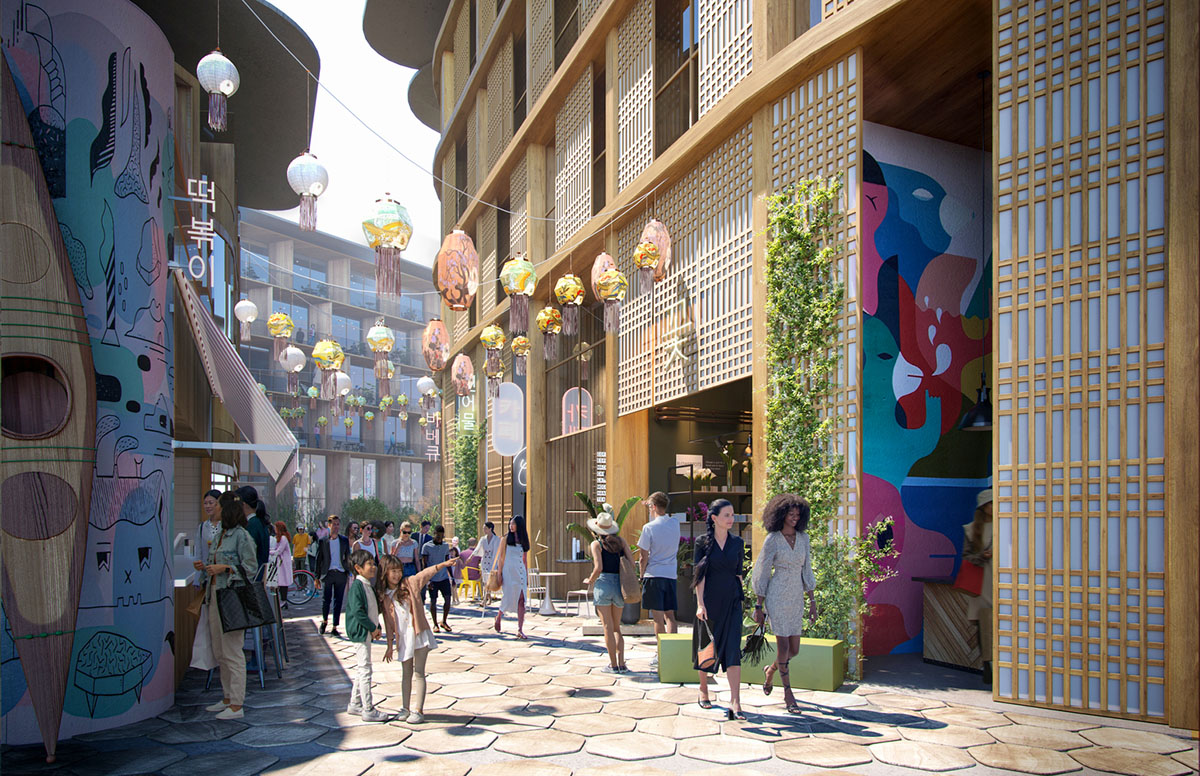
UN-Habitat stated that "two out of every five people in the world live within 100 kilometers of the coast, and 90 percent of megacities worldwide are vulnerable to rising sea levels."
"Flooding is destroying billions of dollars worth of infrastructure and forcing millions of climate refugees to leave their homes."
"With nowhere to expand, rapid urban population growth is pushing people closer to the water, driving housing costs to prohibitive levels, and squeezing the poorest families out," UN-Habitat added.
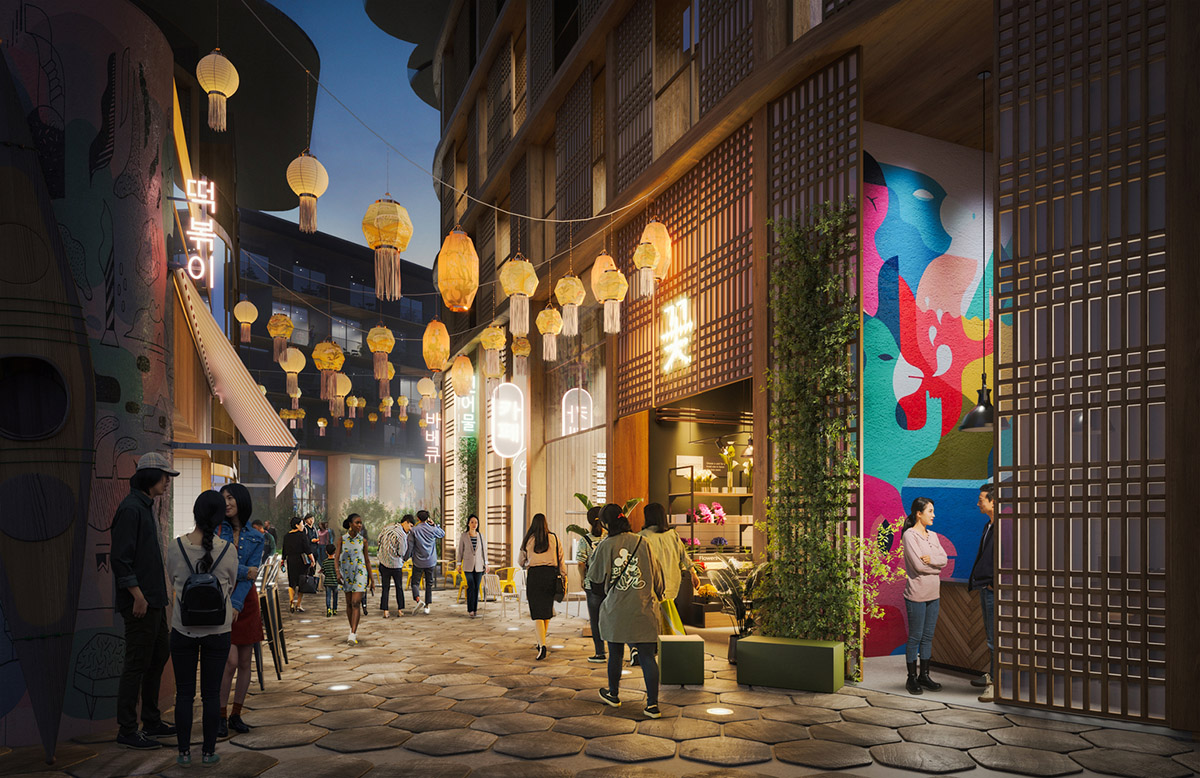
"As Mayor of the Metropolitan City of Busan, I take seriously our commitment to the credo ‘The First to the Future’," said Mayor Park Heong-joon, who has set an ambitious agenda, including turning Busan into a green smart city and launching a bid for World Expo 2030.
"We joined forces with UN-Habitat and Oceanix to be the first to prototype and scale this audacious idea because our common future is at stake in the face of sea level rise and its devastating impact on coastal cities," Heong-joon added.
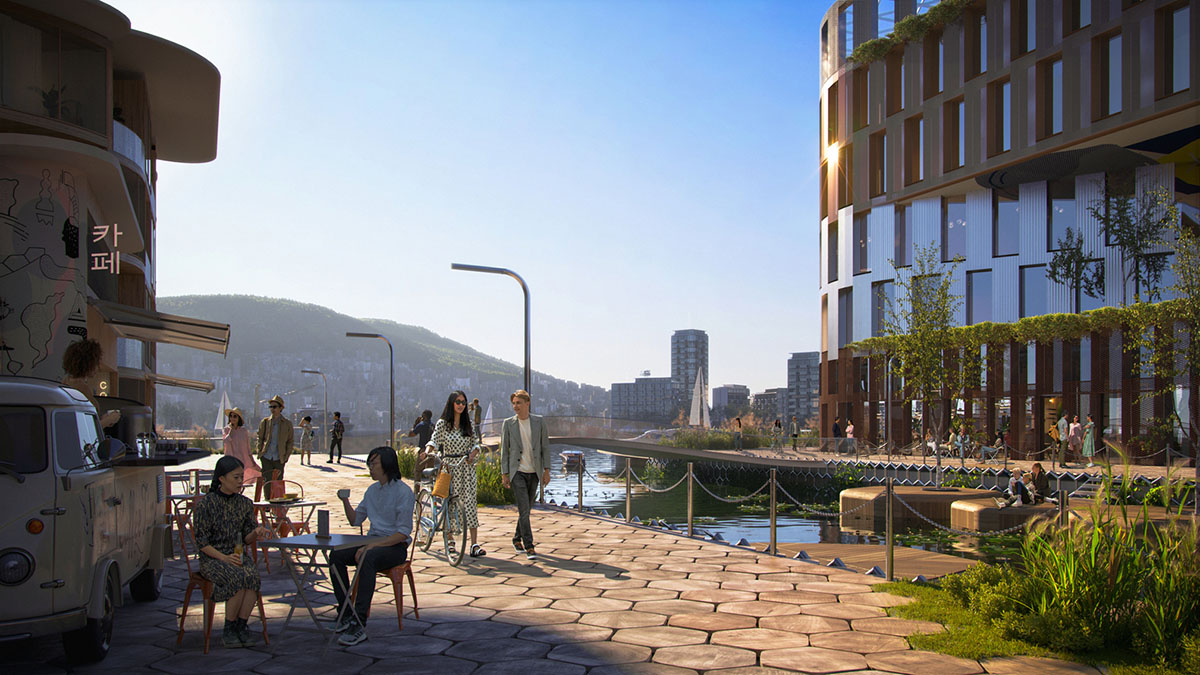
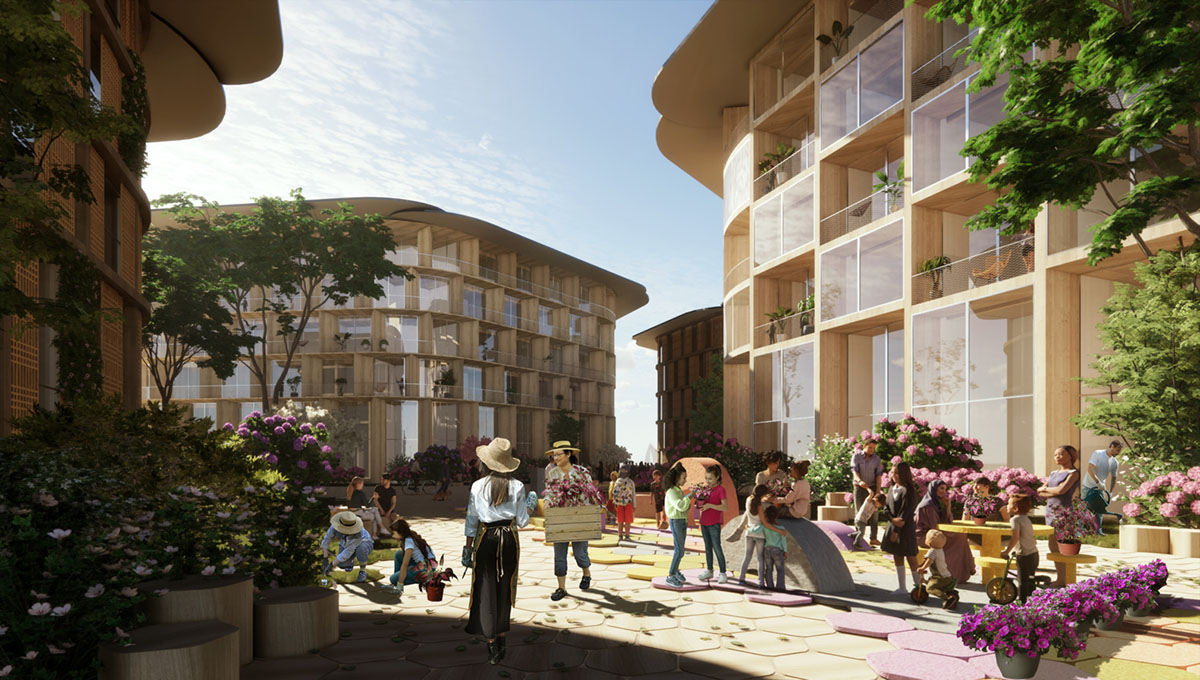
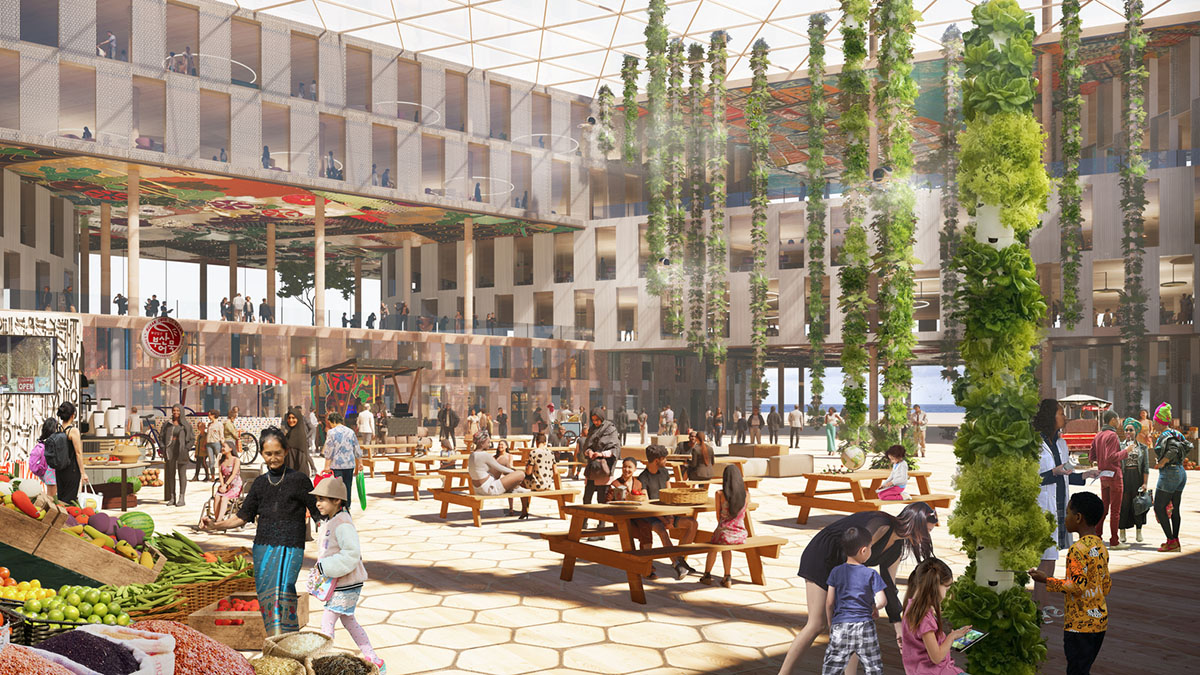
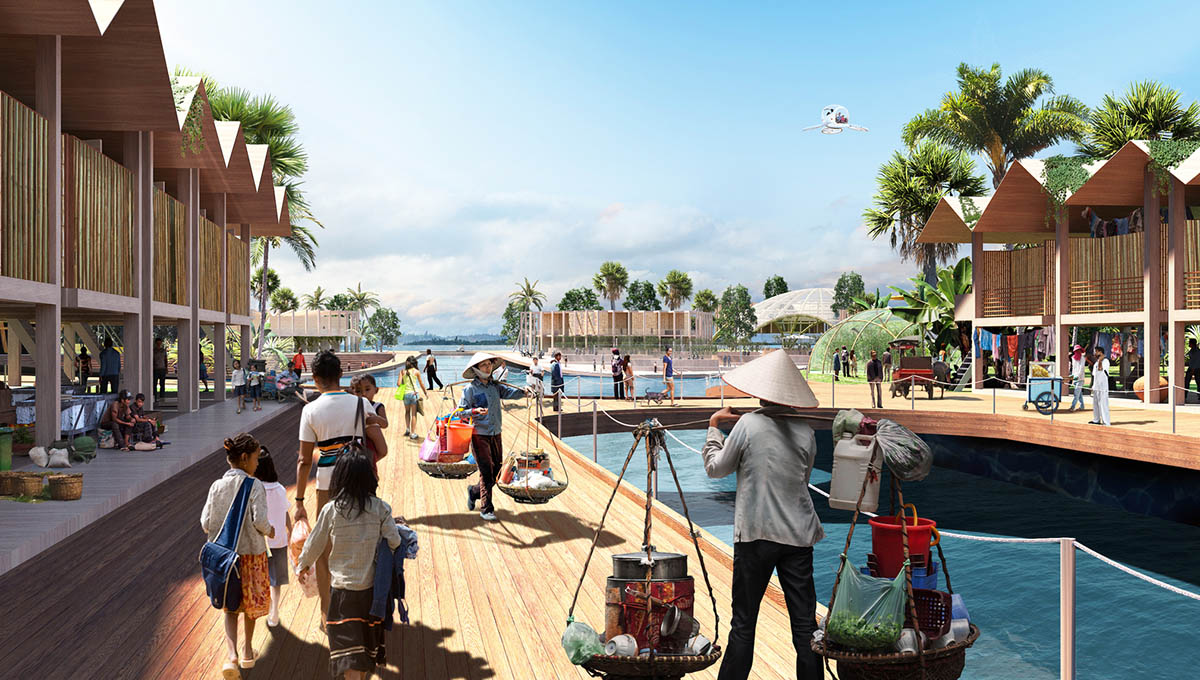
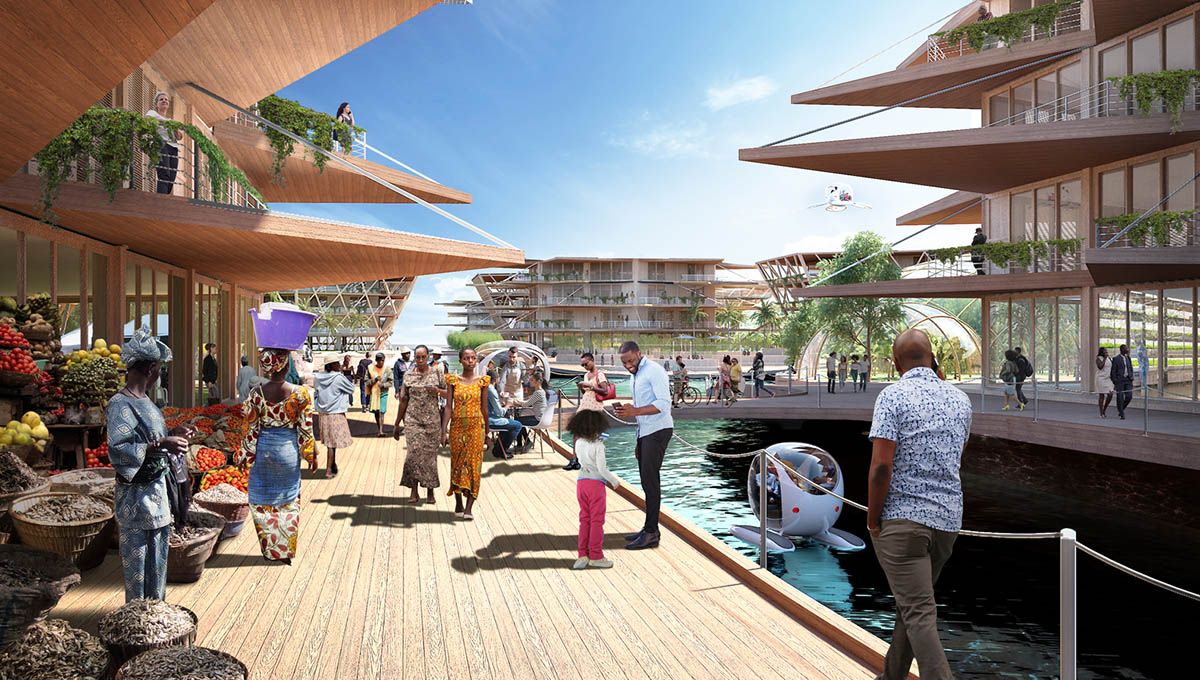
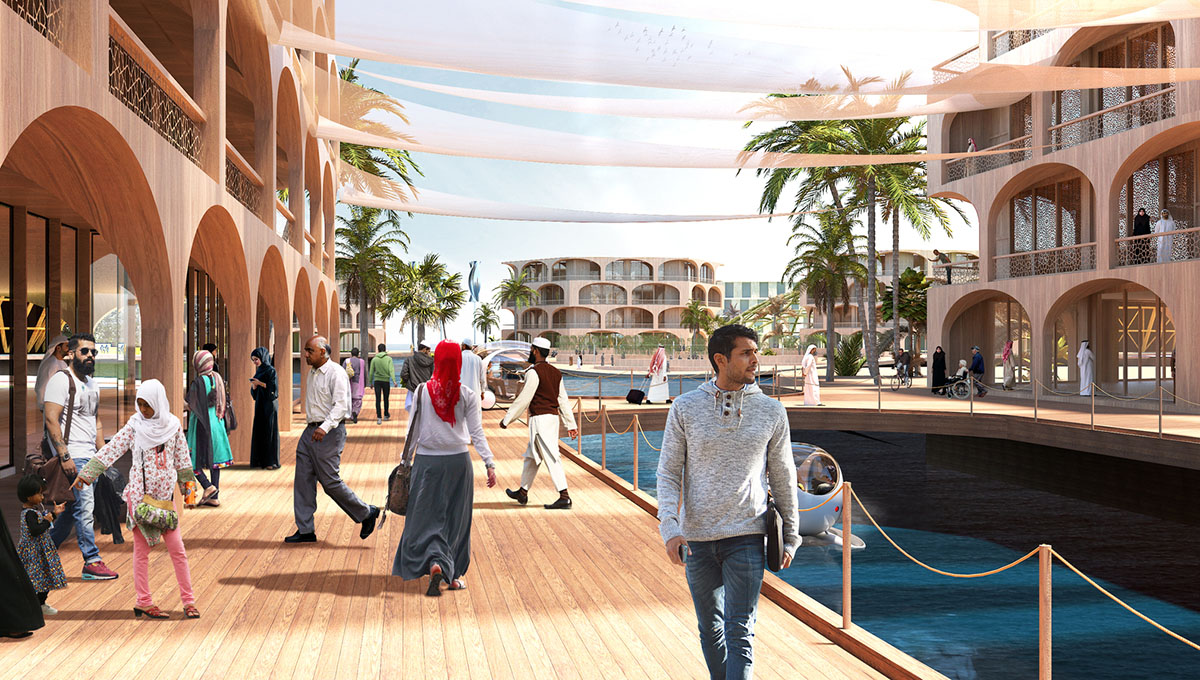
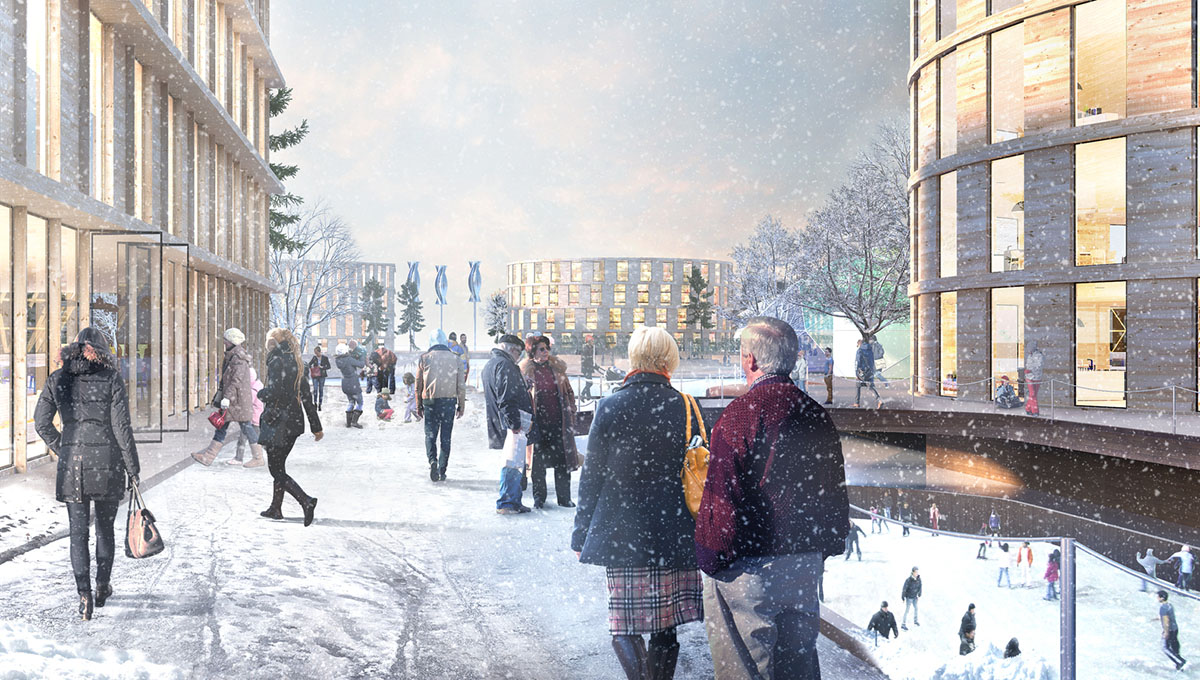
Oceanix Busan was first unveiled at the Second UN Roundtable on Sustainable Floating Cities, a follow up to the inaugural Roundtable in April 2019, where it was agreed to build a prototype with a host city.
The location of the project was decided as Busan with an official agreement last year.
The BIG-Bjarke Ingels Group and Samoo (Samsung Group) will serve as the lead architects of Oceanix Busan.
The team of Oceanix Busan and engineering partners are comprised of: Prime Movers Lab, BIG-Bjarke Ingels Group, SAMOO Architects and Engineers, Arup, Bouygues Construction, Helena, the MIT Center for Ocean Engineering, the Korea Maritime and Ocean University, top environmental artist Olafur Eliasson and Studio Other Spaces, Wartsila, Transsolar KlimaEngineering, Mobility in Chain, Sherwood Design Engineers, Agritecture, the Center for Zero Waste Design, Greenwave, and the Global Coral Reef Alliance.
Oceanix is a blue tech company founded by Itai Madamombe and Marc Collins Chen in 2018 to design and build floating cities for people to live sustainably on the ocean.
All images courtesy of Oceanix and BIG-Bjarke Ingels Group.
> via UN-Habitat
